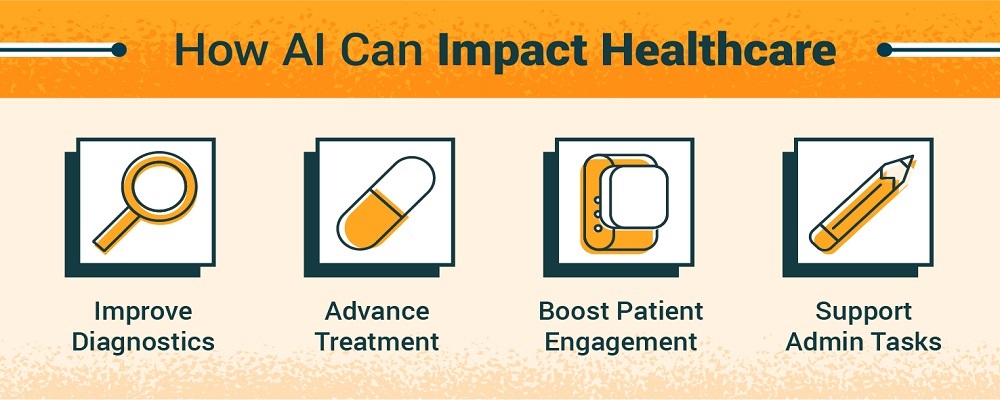In recent years, Artificial Intelligence (AI) has been revolutionizing the healthcare system in the United States, offering immense potential to improve patient care, streamline processes, and enhance outcomes. With the ability to analyze vast amounts of data quickly and efficiently, AI is transforming the way healthcare providers diagnose, treat, and manage diseases. Let’s delve into how AI is making a significant impact in the healthcare sector in the United States.
Early Disease Detection and Diagnosis
One of the key areas where AI is making a difference in healthcare is in early disease detection and diagnosis. AI algorithms can analyze medical images, such as X-rays, MRIs, and CT scans, with a high level of accuracy, helping physicians detect abnormalities that may not be immediately apparent to the human eye. This can lead to earlier diagnosis of conditions like cancer, cardiovascular diseases, and neurological disorders, ultimately improving patient outcomes and survival rates.
Predictive Analytics for Personalized Treatment
AI is also enabling healthcare providers to leverage predictive analytics to develop personalized treatment plans for patients. By analyzing patient data, including medical history, genetic information, and lifestyle factors, AI algorithms can identify patterns and predict potential health risks. This allows healthcare professionals to intervene proactively, offering personalized treatment options that are tailored to each individual’s unique needs.
Enhanced Patient Care and Monitoring
AI-powered systems are enhancing patient care and monitoring by enabling remote patient monitoring and real-time data analysis. Wearable devices and sensors equipped with AI technology can track vital signs, monitor medication adherence, and detect any deviations from normal health parameters. This continuous monitoring not only improves patient outcomes but also reduces the burden on healthcare facilities by minimizing unnecessary hospital visits.
Streamlined Administrative Processes
AI is also streamlining administrative processes in healthcare, reducing paperwork, minimizing errors, and improving efficiency. AI-powered systems can automate tasks such as appointment scheduling, billing, and coding, freeing up healthcare professionals to focus more on patient care. This automation not only saves time and resources but also helps in reducing administrative costs for healthcare organizations.
Drug Discovery and Development
AI is revolutionizing the drug discovery and development process, accelerating the pace at which new medications are brought to market. AI algorithms can analyze vast amounts of biological and chemical data to identify potential drug candidates, predict their efficacy, and optimize dosages. This not only expedites the drug development process but also reduces costs and increases the likelihood of success in clinical trials.
Improved Decision-Making and Treatment Planning
AI is empowering healthcare providers to make more informed decisions and develop precise treatment plans for their patients. By analyzing patient data, medical literature, and treatment guidelines, AI algorithms can assist physicians in diagnosing conditions, selecting appropriate treatments, and predicting outcomes. This data-driven approach helps healthcare professionals deliver more effective and personalized care to their patients.
Ethical and Regulatory Considerations
While the potential benefits of AI in healthcare are vast, there are also ethical and regulatory considerations that need to be addressed. Ensuring patient privacy and data security, maintaining transparency in AI algorithms, and addressing biases in AI decision-making are critical factors that must be carefully managed to foster trust and acceptance of AI technologies in healthcare.
AI is transforming the healthcare system in the United States by enhancing early disease detection, enabling personalized treatment, improving patient care, streamlining administrative processes, accelerating drug discovery, and facilitating informed decision-making. As AI continues to evolve and integrate into healthcare practices, it holds the promise of revolutionizing the way healthcare is delivered, ultimately leading to better outcomes for patients and a more efficient healthcare system.

